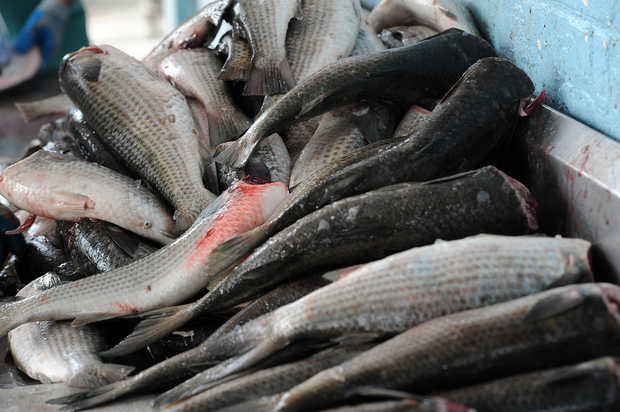- NEWS-
HERALD STAFF and WIRE REPORT
Copy from http://www.bradenton.com
Copy from http://www.bradenton.com

CORTEZ -- It will be too late for long-defunct fish markets in Cortez, but a Leon County circuit judge's ruling could spell the beginning of the end for the ban on gill net fishing in Florida's coastal waters.
In a sweeping judgment in favor of commercial mullet fishermen, Judge Jackie Fulford called contradictions between the ban approved by voters in 1994 and rules adopted by the Florida Fish and Wildlife Conservation Commission in 1997 to implement it a "legal absurdity," according to a report in the Tallahassee Democrat. She ordered a halt Tuesday to enforcement of Florida's constitutional amendment limiting gill net fishing in state coastal waters, according to the Democrat.
"The court is not saying that preserving our marine life is absurd. Instead the absurdity is created in the law and how it is being applied. It is abundantly unfair for the courts to continue to attempt enforcement of laws that contradict each other," the Democrat reported Fulford wrote in her 11-page ruling. "An absolute mess has been created."
Fulford sided with the Wakulla Commercial Fisherman's Association, Panacea bait-and-tackle shop owner Ronald Fred Crum and county mullet fishermen Jonas Porter and Keith Ward, who sued FWC in 2011. They argued during a two-day hearing last year the mesh size of nets the agency forces them to use kills too many baby fish and violates the very constitutional amendment its rules are meant to protect.
Fulford, who spent a year considering her decision, went out on the water off St. Marks last September to see for herself how the nets worked, the Democrat reported.
Fulford said the FWC rule defines any net with a stretched mesh size greater than 2 inches a "gill net" and is at odds with the constitutional amendment, which says all nets except a hand-thrown cast net are illegal.
"We cannot have a provision in our Constitution which outlaws the use of all nets in fishing, except use of a hand thrown cast net, and at the same time have rules adopted by the FWC that make exceptions to this constitutional provision," Fulford wrote. "It is also absurd that a net as defined by FWC as lawful for the mullet fishermen to use, cannot even be used in the manner prescribed by FWC to catch fish."
Within hours of Fulford's order, Attorney General Pam Bondi's office filed a notice of appeal on behalf of FWC to the 1st District Court of Appeal, the Democrat reported.
"We are disappointed with the court's ruling," FWC spokeswoman Amanda Nalley told the Democrat. "We are appealing because we don't think it is valid."
The appeal puts Fulford's order to not enforce the law on hold, Nalley said.
"We are going to continue to enforce the law," she told the Democrat.
When Florida voters passed a constitutional amendment banning the use of gill nets in state waters, commercial harvest of mullet plunged, and several Cortez fish markets went out of business.
Commercial fishing operations still revile the rule, and state wildlife officers still catch and arrest gill netters.
The end of the ban would be welcome for those who remain in Cortez.
"You're dang right," said Cameron Parker, a 19-year-old commercial fisherman who sells mullet and mackerel to A.P. Bell Fish Co. in Cortez, when asked if he would use a cast net if the ban is upheld.
The ban of gill nets was designed to conserve populations of fish who can get caught in the entangling nets. Fish caught in the nets are typically stuck by their gills and die as a result of the entanglement.
But Parker, who said he is a fifth-generation Cortez fisherman, said the ban does little to preserve young fish populations.
"The smaller fish would swim right through the gill nets, and they (the gill nets) would catch the larger fish," he said. "The seine nets (used today) snag the smaller fish."
Crum expected FWC to appeal, but he wishes the two sides could settle and work together to fix the inconsistencies between the agency's rules and the constitutional amendment.
"We've been at this for 20 years," Crum said. "I wish we could get it over with."
